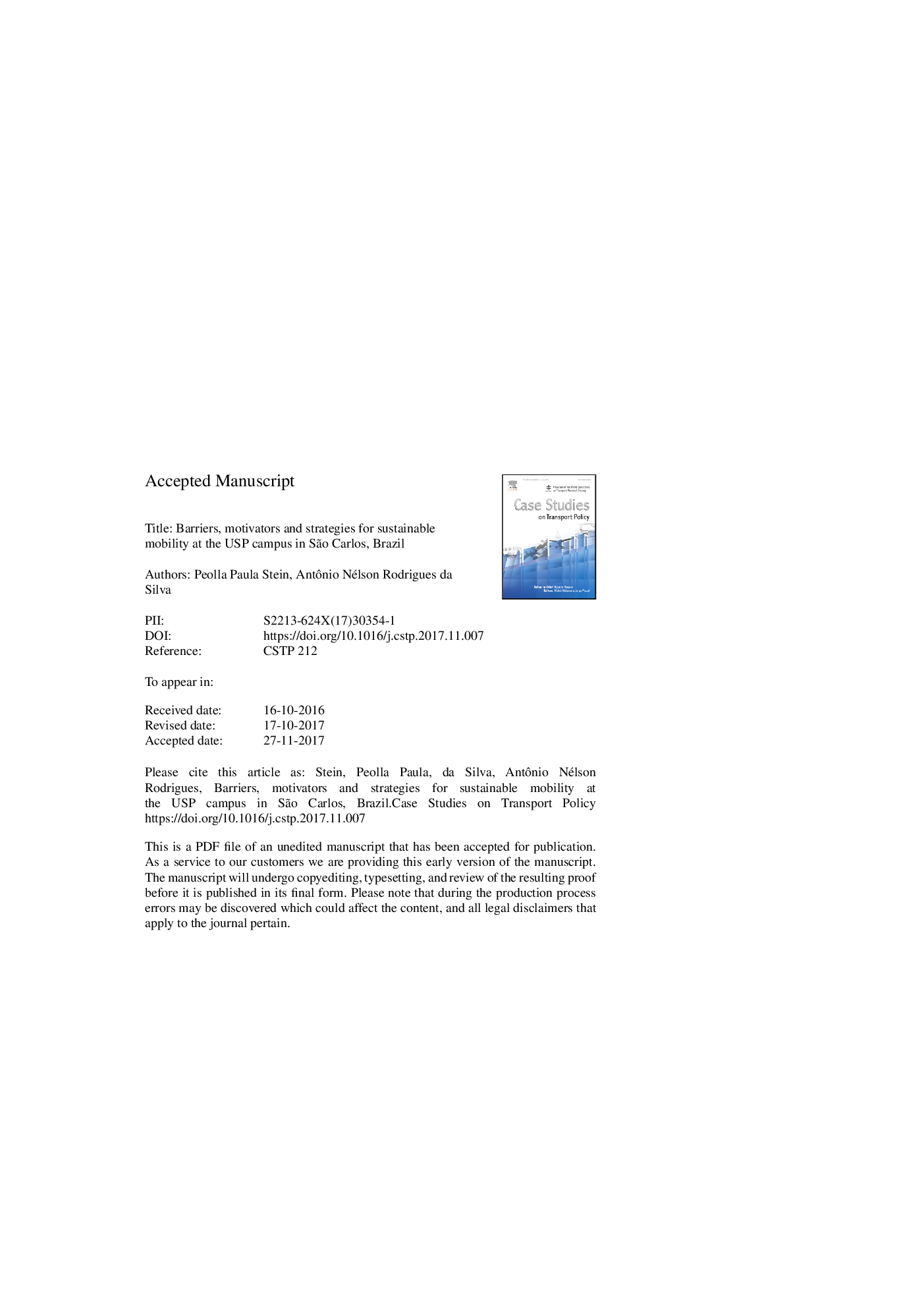| Article ID | Journal | Published Year | Pages | File Type |
|---|---|---|---|---|
| 8941494 | Case Studies on Transport Policy | 2018 | 13 Pages |
Abstract
The objective of this study was to investigate barriers, motivators and strategies to potentially promote sustainable mobility for graduate and undergraduate students, staff and faculty members at the University of São Paulo campus in São Carlos, Brazil. The transtheoretical model of behavior change was used to support the data analysis. Users from all the groups claimed that they would possibly change to another travel mode. Among those who said they would change to sustainable modes (16.7% of all respondents), 27.1% stated they would rather walk, whereas 46.2% would cycle. However, 13.6% of the respondents claimed they would change to cars, which would mean an additional demand of approximately 330 parking spaces on the campus. Owning a motorized vehicle was identified as the main obstacle to adopting sustainable modes.
Related Topics
Physical Sciences and Engineering
Engineering
Civil and Structural Engineering
Authors
Peolla Paula Stein, Antônio Nélson Rodrigues da Silva,
